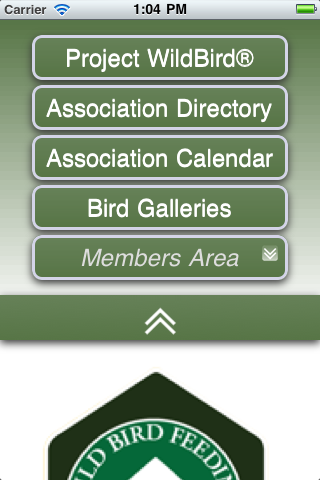
Promoting Responsible Feeding, Creating Alliances, Removing Barriers, Safeguarding Gains, and Enhancing the Experience of the Consumer.
--
PROJECT WILDBIRD®
Each year, over 55 million Americans over the age of 16 feed wild birds or other wildlife around their homes, and spend more than 3.8 billion dollars on bird seed, feeders, and other accessories. Despite its popularity, many bird feeding traditions lack a scientific basis.
PROJECT WILDBIRD® is a U.S. and Canada-wide study of bird seed and feeder preferences. Between 2005-2008, 202 individuals from 42 US states and 3 provinces in Canada made over 20,000 45-minute observations of bird feeders, recording 106 species and 1,282,424 bird visits.
The ten most common species (in alphabetical order) visiting feeders were:
American Goldfinch
Black-capped Chickadee
Brown-headed Cowbird
Common Grackle
House Finch
House Sparrow
Mourning Dove
Northern Cardinal
Pine Siskin
Purple Finch
Of the ten seed types most commonly used in bird seed mixes, five were most attractive to birds:
Black-oil Sunflower
Fine and Medium Sunflower Chips
Nyjer®
White Proso Millet
Other seeds such as Red Milo were less attractive to birds.
In general, Chickadees, Nuthatches, and larger Finches preferred Black-oil Sunflower, smaller finches preferred Nyjer® and Sunflower chips, and Sparrows and other ground-feeding species preferred White Proso Millet.
Studies such as PROJECT WILDBIRD® can be used to develop scientifically-based best practices for wild bird feeding, a hobby engaged in by a significant number of Americans and Canadians of all ages.
For more information on PROJECT WILDBIRD®, please visit www.projectwildbird.org.
The final results presentation by Principal Investigator Dr. David Horn of Millikin University is available to WBFI Members in the members only section of this website. An executive summary and appendix are also available to WBFI Members from the secure area.



